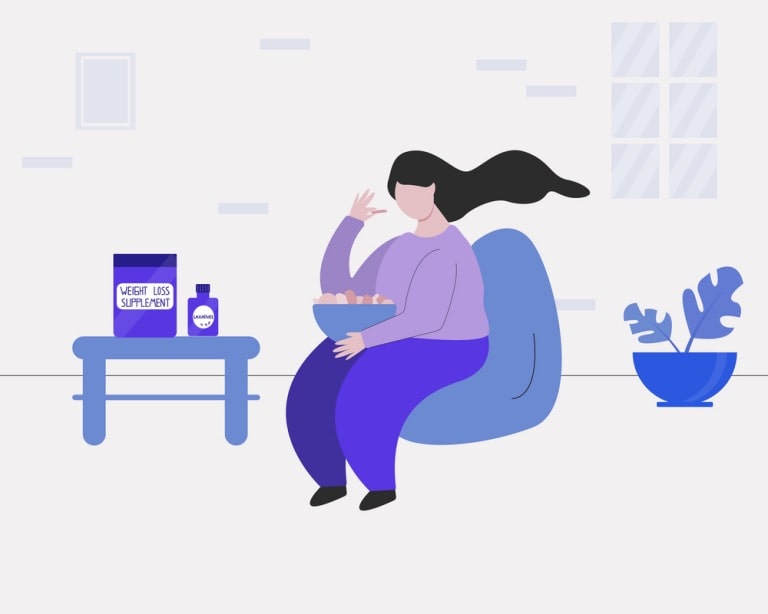Why Does Bulimia Cause Facial Swelling? A Look into Salivary Gland Issues

Bulimia nervosa can be a deeply painful and personal struggle, affecting not just your body but also how you see yourself and how you believe others see you. One physical change that can be especially difficult is facial swelling. This visible symptom may feel like a constant reminder of what you’re going through, making it even harder to cope. If you’re dealing with this, it’s important to understand what’s happening to your body and to know that recovery and healing are possible.
What Causes Facial Swelling in Bulimia?
The facial swelling associated with bulimia, commonly known as “bulimia face,” primarily stems from the frequent act of purging, especially vomiting. When you purge by vomiting, the repeated strain impacts various body parts, particularly affecting the salivary glands. Frequent vomiting places unusual stress on these glands, causing them to swell and become visibly larger over time. This condition is known as “parotid gland hypertrophy.”
This change in appearance is distressing for many people because it can feel like a very visible sign of what’s happening beneath the surface. And even though others may not know the reason for the swelling, you might feel like everyone notices it, which can fuel feelings of shame or self-consciousness.
Why Do Salivary Glands Swell with Bulimia?
Salivary glands react to the body’s signals, and vomiting sends an unusual message to these glands. Normally, when you’re about to eat, your salivary glands start producing saliva to help with digestion. However, frequent vomiting can confuse these glands. This ongoing cycle leads to swelling, making your face look puffy or rounder, especially after frequent purging. For someone struggling with bulimia, it can feel like a cruel irony. Your body’s response to the purging cycle causes the physical change you’re likely trying to avoid or control.
The Emotional Impact of “Bulimia Face”
Facial swelling can be a very real reminder of your eating disorder, making it hard to escape from the daily battle. You might feel like people notice it, even if they don’t, and this worry can add to your stress and anxiety. You may even feel pressured to hide your face or avoid social interactions. The most important thing to remember is that this swelling isn’t a permanent feature of who you are. Recovery is possible, and as you move away from purging behaviors, your body can start to heal, and the swelling may reduce over time.
Is Bulimia Face Reversible?
Yes, the facial swelling associated with bulimia is often reversible. As you work on reducing or stopping purging behaviors, your salivary glands can gradually return to their normal size. This won’t happen overnight, but the physical effects can lessen with time and healing. It’s essential to give yourself grace during this time. Like the rest of your body, your face needs time to heal.
Supporting Your Salivary Glands During Recovery
In addition to working on reducing purging, there are gentle ways to support your body and give it the best chance to heal:
Hydration
Drinking plenty of water helps your body stay hydrated and can reduce dryness caused by vomiting. Proper hydration also supports salivary gland function and can help reduce the puffiness around your face over time.
Gentle Massage
Lightly massaging around your jaw and cheeks can help relieve tension and encourage normal salivary flow. Avoid it and speak to a professional for safer techniques if this feels uncomfortable.
Avoiding Salty Foods
High salt intake can lead to water retention, which may make facial swelling look more pronounced. Reducing your salt intake could help your body recover faster.
Seeking Professional Dental Care
Your dentist can provide guidance on protecting your teeth and salivary glands from the effects of frequent purging. Dentists often suggest using gentle mouth rinses or products that support oral health.
Final Thoughts
If you’re living with bulimia, facial swelling might feel like an extra burden to carry. Reaching out to a mental health professional, eating disorder specialist, or support group can give you tools to navigate recovery and reduce behaviors that affect your physical health. Addressing the underlying causes, whether tied to self-image, perfectionism, or control, is critical.
It’s completely understandable to feel overwhelmed by the idea of change, especially when facing something as personal as bulimia. Recovery might feel slow, and there will be challenges along the way. But there is hope for a future where your face reflects not only who you are on the outside but also the strength and resilience you’re building on the inside.





